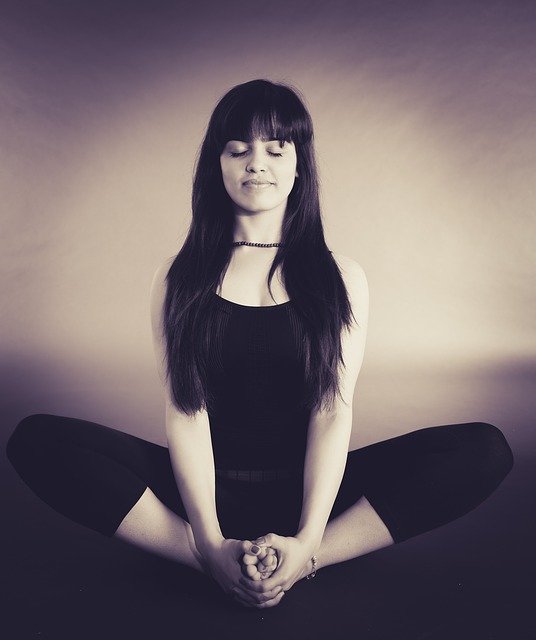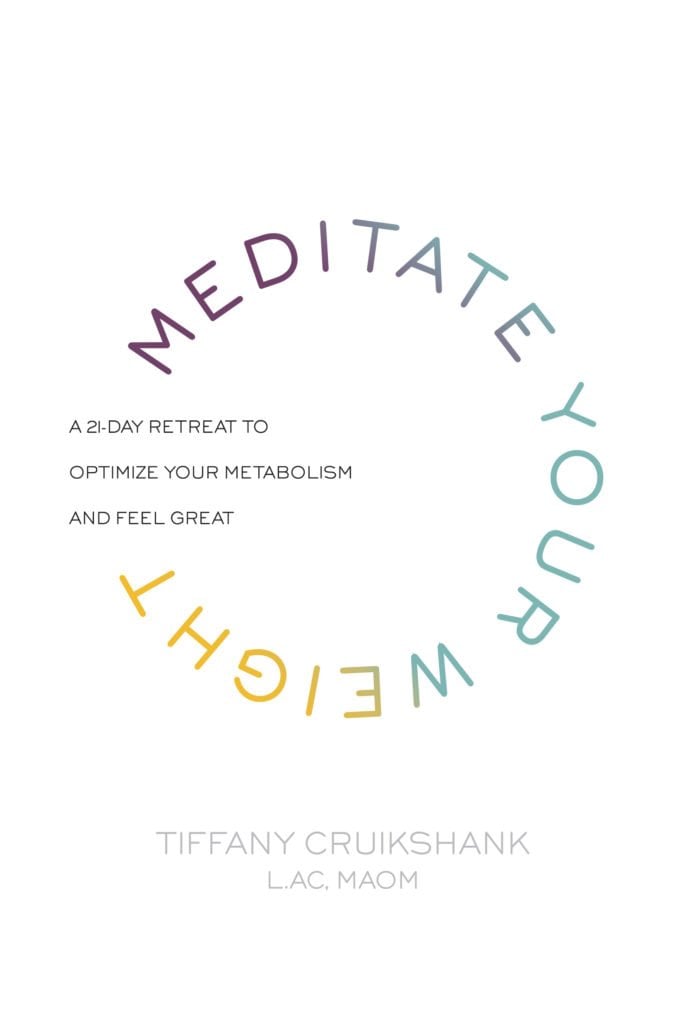
It’s Time to Meditate
We have a sneak peek inside a truly great book! This excerpt is from the book Meditate Your Weight: A 21-Day Retreat To Optimize Your Metabolism And Feel Great and really breaks down how meditation could be the missing piece to your health puzzle. Be strong physically and mentally!
Mediate your way to a healthier you
Excerpted from MEDITATE YOUR WEIGHT: A 21-Day Retreat To Optimize Your Metabolism And Feel Great Copyright © 2016 by Tiffany Cruikshank. Published by Harmony Books, an imprint of Penguin Random House LLC.
Some Myths About Mediation – and the Truth
Though meditating is simpler to do than many believe, it is also a mysterious process—how does it work, exactly? Even scientists are not exactly sure, but they’re getting closer. That mystery sometimes causes a bit of a PR problem for meditation, but I’d love to clear up a few of those misunderstandings.
Myth:
“Meditation is a spiritual practice.”
Truth:
Meditation is, first and foremost, a mental practice.
Meditation is not voodoo. Meditation is not New Age or mystical. Yes, meditation has been used in many forms in religious traditions and cultures throughout history and throughout the world—but the act of meditating isn’t inherently spiritual.
At its core, meditation is a means of training your mind. It has direct physiological effects on the brain and nervous system that can be studied in the lab, tracked by sophisticated fMRI brain scanners, or analyzed with a blood test, stethoscope, or heart rate monitor. In fact, over the last twenty-five years, more than three thousand studies on meditators have been conducted at some of the most respected research institutions in the world, including Harvard, Yale, Stanford, and the universities of California, North Carolina, and Wisconsin, among many others. The data from these studies are very clear: Meditation helps people lead healthier, happier, and more fulfilling lives.
Myth:
“Meditation just doesn’t work for me.” Or: “I can’t meditate.”
Truth:
Meditation works for everyone, and everyone can do it.
 I hear it all the time: “I can’t meditate—it just doesn’t work for me.”
I hear it all the time: “I can’t meditate—it just doesn’t work for me.”
Imagine if a baby who was just learning how to walk tried to take a step and fell down then turned around and said, “Sorry, Mom and Dad—this walking thing just doesn’t work for me.”
Silly, right? But meditation is like walking—it’s an activity we learn to do in very short spurts, then continue to practice and improve upon for the rest of our lives.
Once you’ve mastered the basics of walking, you can go in any direction you’d like—you can run the fifty-yard dash in gym class, you can train for a 5k, you can become a marathoner. Or, like many people, you might just stick with basic walking to get you through your days.
But the core mechanics involved in each of these activities is exactly the same: You put one foot in front of the other, and you move forward.
Meditation is just like that. You might just do three minutes a day; you might work up to twenty. You might fall in love with it and decide to dig deep and do a retreat. But at an elemental level, no matter where you find yourself currently, you are a meditator.
From the very first moment, you sit, take a breath, and notice that your mind is wandering, you’re already doing it—you’re meditating.
Myth:
“The real type of meditation is [X] – and if you don’t do [X], you’re not really meditating.”
Truth:
Any type of mediation is “real”; No one type is better than another.
When we start meditating, a common trap is to get caught in thinking we have to follow a specific type of meditation. When I first got into meditation back in the early nineties, people were very specific about it. I heard all kinds of dictums:
- You can’t be sitting on a chair—you have to sit on a cushion.
- Your legs need to be in this position.
- You have to have your right thumb on top and your left thumb on the bottom.
- Your right heel must be in front.
- Your spine has to be right over your pelvis.
- You have to chant this or think about that.
 All of these might be helpful suggestions to you—or not. To use meditation to reach your health goals, there are truly no absolutes of this kind. What works for you is what works for you. It doesn’t matter if you do visualization or count your breaths, or simply take a moment to close your eyes and be still while riding on the bus—all of these are just tools, and all of them are forms of meditation.
All of these might be helpful suggestions to you—or not. To use meditation to reach your health goals, there are truly no absolutes of this kind. What works for you is what works for you. It doesn’t matter if you do visualization or count your breaths, or simply take a moment to close your eyes and be still while riding on the bus—all of these are just tools, and all of them are forms of meditation.
Anytime you take a moment to just sit there—voilà, you’re meditating.
And that’s the ultimate goal of meditation: that, with practice, you will get to a level of comfort in which you can just tip back into that same relaxed, focused mental space on the drop of a dime, anytime you notice that you’re getting stressed. By developing your meditation skills, you become able to step out of the stress loop and remain cool, calm, and collected as often as you’d like.
If you’re drawn to one specific method of meditation, that’s great—stick with what works for you.
Find the tool that you need and use it. But from a scientific perspective, and for the results we’re looking for in the mind and body, please know there are many “right” ways to do it.
Myth:
“You have meditated for twenty minutes or more, or it’s not worth it.”
Truth:
Any amount of meditation can make a difference in your life.
The length of time you spend meditating is absolutely secondary to frequency. If you have to struggle and force yourself to stay still for twenty minutes, you’re not going to get the health benefits that you would simply be sitting for five minutes and just paying attention to your breath.
The effort you expend to sit in that spot longer than your tolerance can take will stimulate a stress response in your nervous system. I would so much rather you meditate once a day for three minutes than once a week for twenty.
Yes, that little time really does make a difference. One study found that as few as five minutes of meditation a day for four weeks significantly reduced…
Want to finish the rest? Grab your copy of Meditate Your Weight today!
- Post-Workout Meal: Getting the Most from Your Workout - January 22, 2024
- 6 Ab Exercises To Blast Your Core - December 17, 2023
- 10 Office Exercises You Can Do To Burn Calories - November 19, 2023



